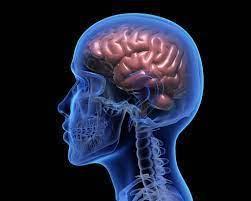The brain health
The brain health
As the old saying goes, "you are what you eat," and when it comes to brain health, this couldn't be more true. The foods we consume have a direct impact on our brain function, memory, and cognitive abilities. In other words, our brain needs the right kind of fuel to function at its best, and that fuel comes from what we eat. In this article, we will explore the concept of "brain food" and its importance in maintaining a healthy mind.
First and foremost, it is important to understand that the brain requires a balance of nutrients to function optimally. This means that a healthy diet should include a variety of foods that provide the vitamins, minerals, and other nutrients that the brain needs to function properly. Some of the most important nutrients for brain health include omega-3 fatty acids, B vitamins, vitamin E, and antioxidants.
Omega-3 fatty acids, which are found in oily fish such as salmon and sardines, are crucial for brain function and development. These fatty acids help to build cell membranes in the brain and improve communication between brain cells. B vitamins, which are found in leafy greens, nuts, and whole grains, are also essential for brain health, as they help to support the nervous system and improve cognitive function.
Vitamin E, which is found in nuts, seeds, and vegetable oils, is a powerful antioxidant that helps to protect the brain from oxidative stress. This stress can damage brain cells and lead to cognitive decline. Antioxidants, which are found in fruits and vegetables, help to protect the brain from free radicals, which can also damage brain cells.
In addition to these nutrients, there are also specific foods that have been shown to have a positive impact on brain function. For example, blueberries are known for their antioxidant properties and have been shown to improve memory and cognitive function in older adults. Avocados are another brain-boosting food, as they are high in healthy fats and contain vitamin E, which is important for brain health.
Other brain-boosting foods include dark chocolate, which is high in flavonoids that can improve blood flow to the brain, and green tea, which contains compounds that have been shown to enhance cognitive function and improve mood.
While it is important to consume a variety of brain-boosting foods, it is also important to avoid foods that can be detrimental to brain health. Processed foods, sugary drinks, and foods high in saturated fats have all been linked to cognitive decline and should be consumed in moderation.
The concept of "brain food" is not a myth. The foods we consume have a direct impact on our brain function, and consuming a diet rich in brain-boosting nutrients and foods can help to improve cognitive function, memory, and overall brain health. By prioritizing brain-boosting foods and avoiding those that can be harmful, we can give our brains the fuel they need to function at their best.
There are also certain lifestyle factors that can support brain health, in addition to consuming brain-boosting foods. Regular physical exercise has been shown to improve brain function and reduce the risk of cognitive decline. Getting enough sleep is also crucial for brain health, as it allows the brain to consolidate memories and repair itself.
In addition, engaging in mentally stimulating activities, such as reading, playing games, and learning new skills, can help to maintain cognitive function and improve brain health. Socializing and connecting with others has also been linked to better brain health and reduced risk of cognitive decline.
It is important to note that there is no single "miracle food" or supplement that can improve brain function on its own. Rather, a healthy diet and lifestyle that prioritizes brain-boosting foods, regular exercise, adequate sleep, and mental stimulation can all work together to support optimal brain health.
In conclusion, our brain is one of our most vital organs, and it requires a healthy diet and lifestyle to function at its best. By prioritizing brain-boosting foods and lifestyle factors, we can support our brain health and reduce the risk of cognitive decline. So, next time you reach for a snack or plan your meals, consider choosing brain-boosting foods that will nourish your mind and support your cognitive abilities.
Fred.
Be the first to post a message!
